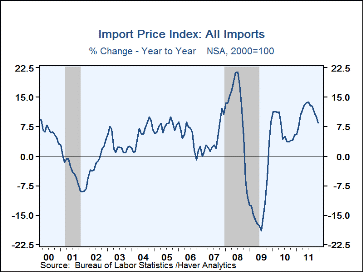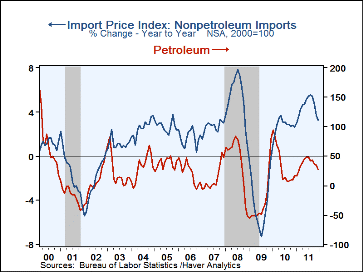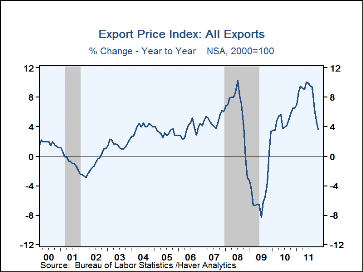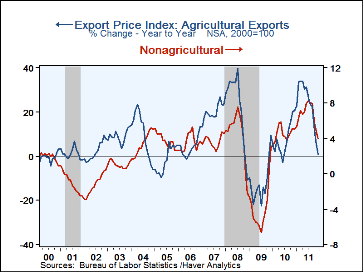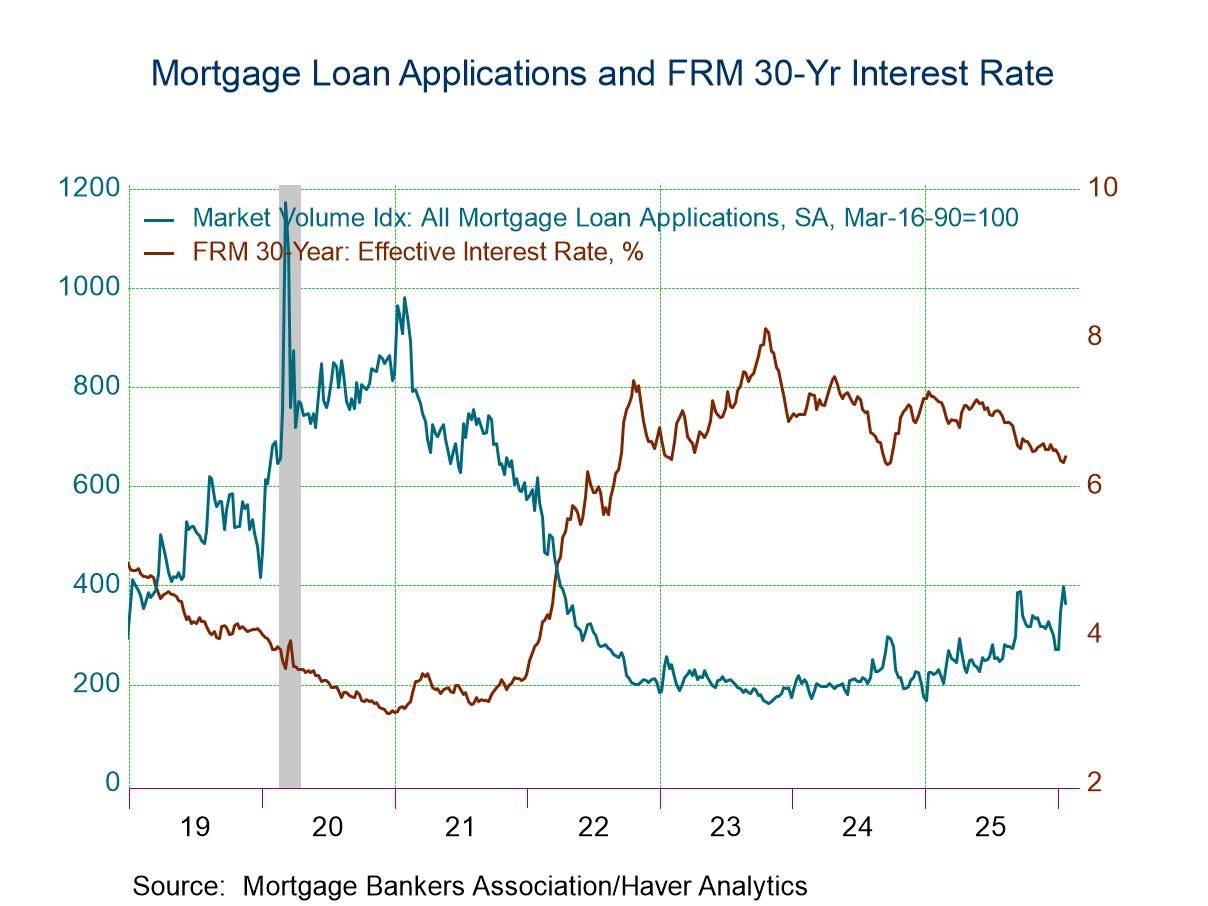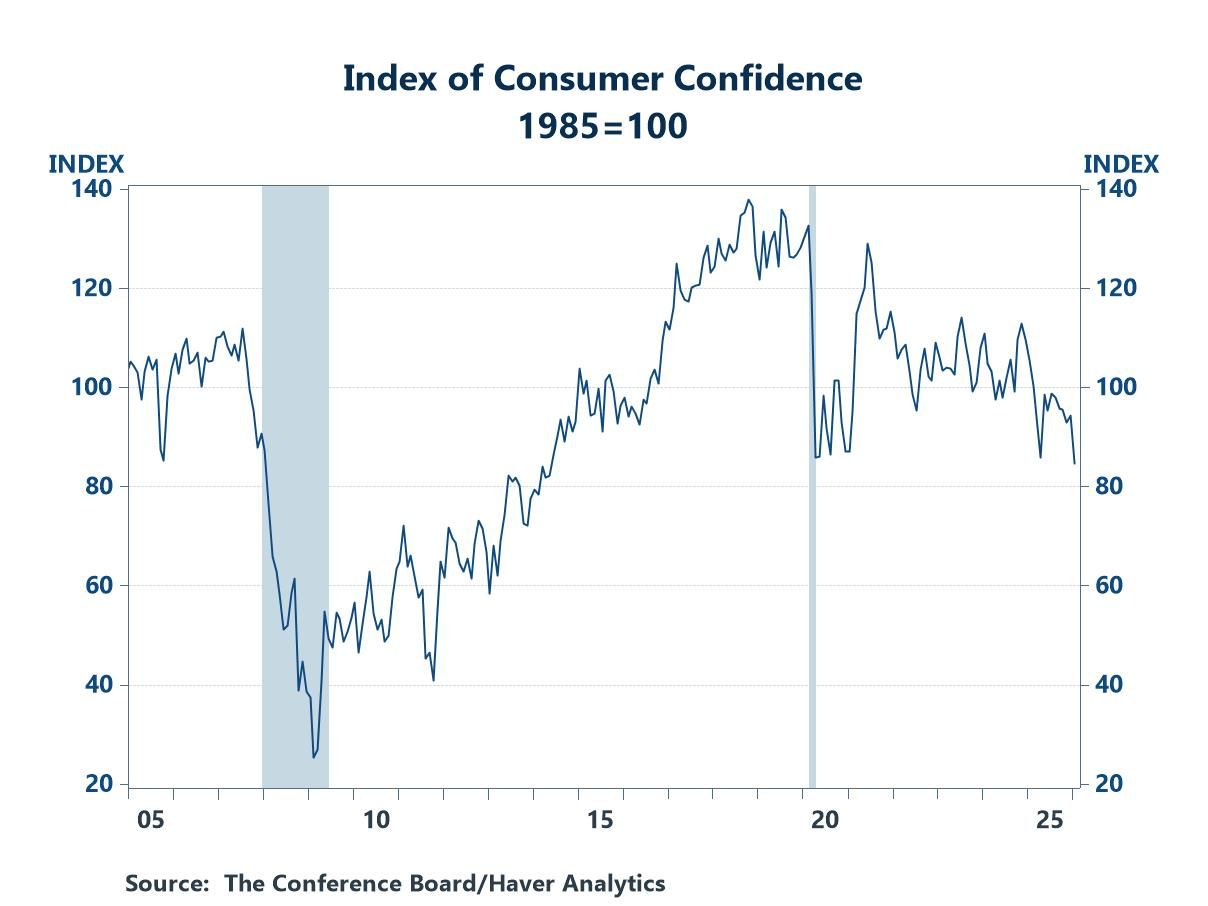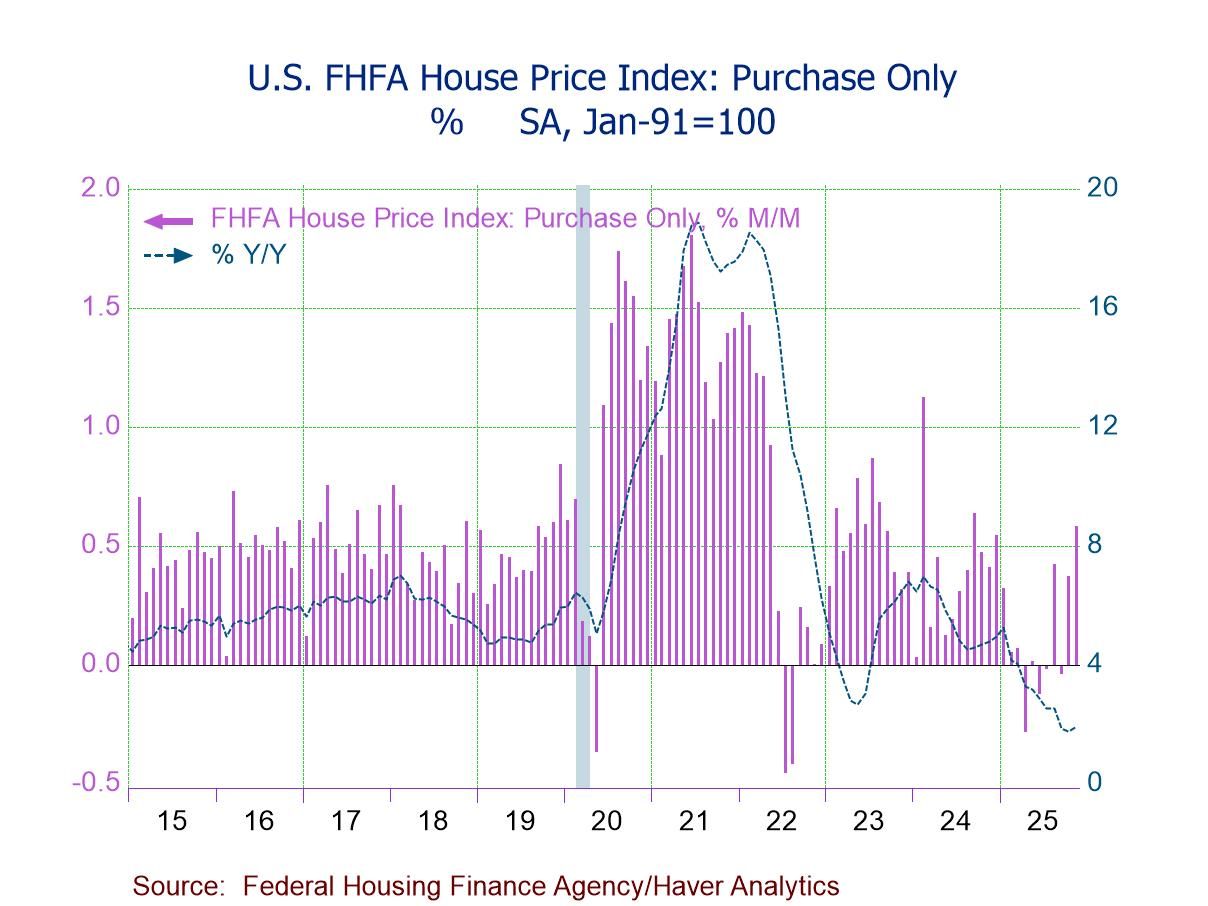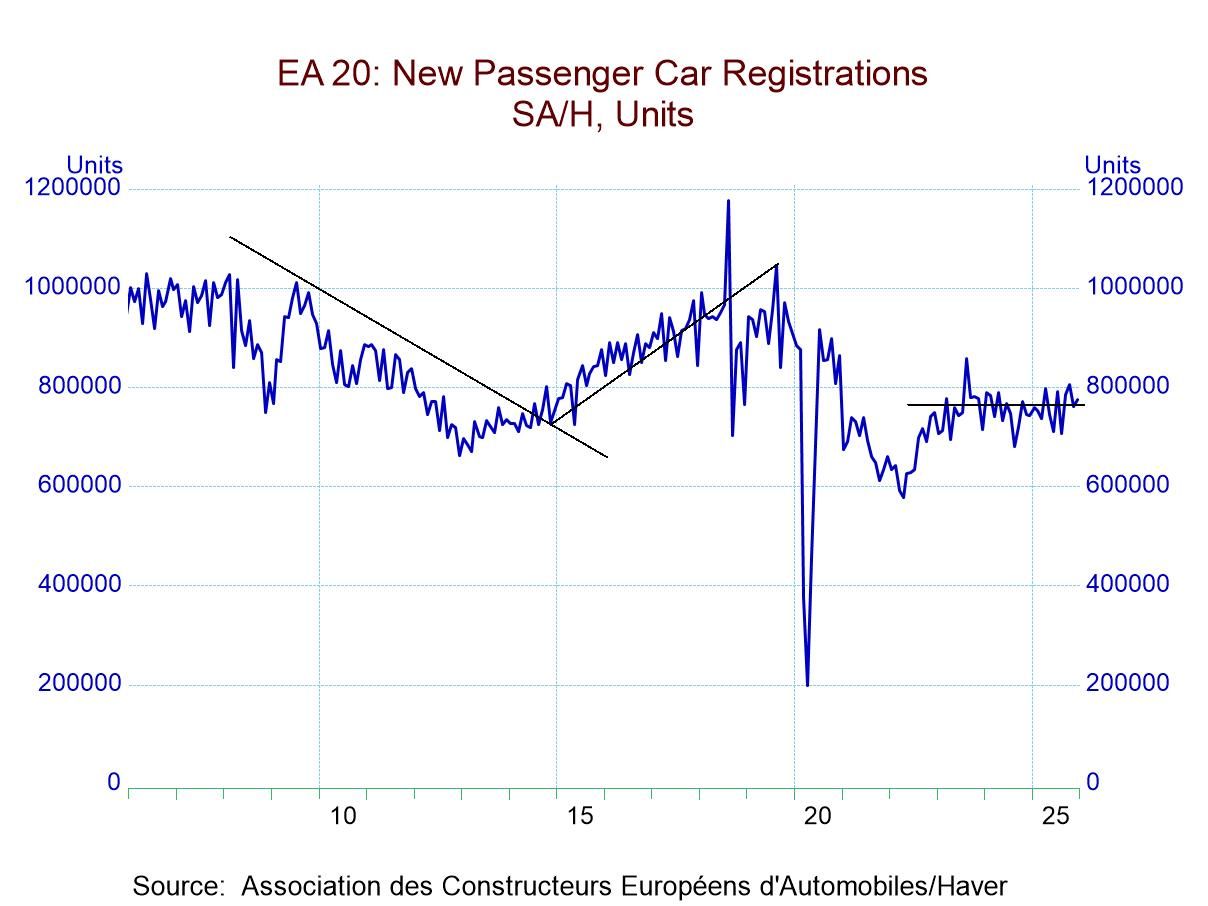 Global| Jan 13 2012
Global| Jan 13 2012U.S. Import Prices Slip With Lower Oil Prices
by:Tom Moeller
|in:Economy in Brief
Summary
U.S. import prices matched expectations and slipped 0.1% last month. That followed a revised 0.8% November gain, initially reported as 0.7%. Year-to-year, higher oil prices and the lower value of the dollar raised prices for imported [...]
U.S. import prices matched expectations and slipped 0.1% last month. That followed a revised 0.8% November gain, initially reported as 0.7%. Year-to-year, higher oil prices and the lower value of the dollar raised prices for imported products by 8.5% y/y. Petroleum prices slipped 0.4% last month but rose one-third versus last year as Brent crude oil slipped to an average $109.60 per barrel. Prices so far this month recovered the December decline but remain down from April high of $112.68. Non-oil import prices fell 0.2% (+3.7% y/y) during December, down for the second consecutive month. The y/y change in non-oil import prices during the last ten years has an 81% inverse correlation with the nominal trade-weighted exchange value of the US dollar vs. major currencies.
Imported food & beverage prices slipped 0.4% last month (+6.3% y/y) while prices for non-oil industrial supplies fell 0.5% (+5.3% y/y). Prices for non-auto consumer goods ticked up 0.2% (3.2% y/y) reflecting no change (3.6% y/y) in household goods. Furniture prices slipped 0.2% (+6.1% y/y) and home entertainment equipment prices rose 0.8% (-6.0% y/y), up m/m for the first monthly gain since 2009. The increase reflected a higher TV costs but they're still off 5.9% y/y. Imported auto prices inched up 0.1% (3.7% y/y) and imported capital goods prices gained 0.2% (0.9% y/y). Computer & peripherals prices rose 0.9% (-4.3% y/y) while excluding computers, capital goods prices were unchanged (3.2% y/y).
U.S. export prices fell 0.5% as agricultural prices dropped 2.6 accompanied by a 0.2% slip in non-agricultural goods (+4.0% y/y). Prices of industrial supplies fell 0.8% but were up 6.9% y/y. Capital goods prices were unchanged (0.7% y/y) for the third consecutive month and nonauto consumer goods prices inched up 0.1% (3.6% y/y). Prices for exported autos & parts slipped 0.1% (+2.6% y/y).
The import and export price series can be found in Haver's USECON database. Detailed figures are available in the USINT database. The expectations figure is in the AS1REPNA database.
| Import/Export Prices (NSA, %) | Dec | Nov | Oct | Dec Y/Y | 2011 | 2010 | 2009 |
|---|---|---|---|---|---|---|---|
| Imports - All Commodities | -0.1 | 0.8 | -0.4 | 8.5 | 10.9 | 6.9 | -11.5 |
| Petroleum | -0.4 | 3.8 | -0.3 | 27.4 | 36.5 | 28.4 | -35.9 |
| Nonpetroleum | 0.0 | -0.2 | -0.4 | 3.3 | 4.4 | 2.8 | -4.1 |
| Exports - All Commodities | -0.5 | 0.1 | -2.0 | 3.6 | 8.1 | 4.9 | -4.6 |
| Agricultural | -2.6 | 1.7 | -6.5 | 0.8 | 22.3 | 7.9 | -12.8 |
| Nonagricultural | -0.2 | -0.2 | -1.4 | 4.0 | 6.6 | 4.6 | -3.7 |
Tom Moeller
AuthorMore in Author Profile »Prior to joining Haver Analytics in 2000, Mr. Moeller worked as the Economist at Chancellor Capital Management from 1985 to 1999. There, he developed comprehensive economic forecasts and interpreted economic data for equity and fixed income portfolio managers. Also at Chancellor, Mr. Moeller worked as an equity analyst and was responsible for researching and rating companies in the economically sensitive automobile and housing industries for investment in Chancellor’s equity portfolio. Prior to joining Chancellor, Mr. Moeller was an Economist at Citibank from 1979 to 1984. He also analyzed pricing behavior in the metals industry for the Council on Wage and Price Stability in Washington, D.C. In 1999, Mr. Moeller received the award for most accurate forecast from the Forecasters' Club of New York. From 1990 to 1992 he was President of the New York Association for Business Economists. Mr. Moeller earned an M.B.A. in Finance from Fordham University, where he graduated in 1987. He holds a Bachelor of Arts in Economics from George Washington University.


